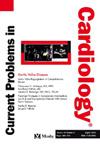Metabolic syndrome, ischemic heart disease, and heart failure: insights from the Colombian Heart Failure Registry (RECOLFACA)
IF 3.3
3区 医学
Q2 CARDIAC & CARDIOVASCULAR SYSTEMS
引用次数: 0
Abstract
Background
Ischemic heart disease (IHD) is still a leading cause of morbidity and mortality worldwide, with major implications for healthcare systems, especially in low- and middle-income countries. Effective metabolic control and risk factor management, including evidence-based pharmacological therapies such as statins, ACE inhibitors (ACEIs), and angiotensin receptor-neprilysin inhibitors (ARNIs), are essential for reducing adverse outcomes. However, gaps persist in the implementation of these therapies, particularly in resource-limited regions.
Objective
To evaluate metabolic control and the use of evidence-based therapies in patients with IHD enrolled in the Colombian Heart Failure Registry (RECOLFACA), and to identify barriers to optimal treatment implementation.
Methods
This cross-sectional study analyzed demographic, clinical, and biochemical data, as well as medication usage, from patients with confirmed IHD. Descriptive and inferential statistical analyses were performed to identify treatment patterns and associated factors.
Results
Among 2,528 patients with heart failure (HF), 1,123 had IHD. Statins were prescribed to 73.6% (827), antiplatelets to 66.3% (745), and ARNIs to only 10.1% (114), despite guideline recommendations. Statin use was notably low among patients with chronic kidney disease (CKD) (18.1%), diabetes mellitus type 2 (15.8%), and both conditions combined (3.2%).
Conclusions
Despite robust evidence supporting their efficacy, the use of statins, ACEIs, and ARNIs remains suboptimal in Colombia. Addressing barriers to access, adherence, and healthcare delivery is crucial to improve outcomes and align clinical practices with international standards. These findings highlight the need for targeted interventions and future studies to evaluate strategies that enhance access to and adherence with guideline-directed therapies.
代谢综合征、缺血性心脏病和心力衰竭:来自哥伦比亚心力衰竭登记(RECOLFACA)的见解。
背景:缺血性心脏病(IHD)仍然是世界范围内发病率和死亡率的主要原因,对卫生保健系统具有重大影响,特别是在低收入和中等收入国家。有效的代谢控制和风险因素管理,包括以证据为基础的药物治疗,如他汀类药物、ACE抑制剂(ACEIs)和血管紧张素受体- nepryysin抑制剂(ARNIs),对于减少不良后果至关重要。然而,在实施这些疗法方面仍然存在差距,特别是在资源有限的地区。目的:评估哥伦比亚心力衰竭登记处(RECOLFACA)登记的IHD患者的代谢控制和循证治疗的使用情况,并确定最佳治疗实施的障碍。方法:本横断面研究分析了确诊IHD患者的人口学、临床和生化数据以及药物使用情况。进行描述性和推断性统计分析以确定治疗模式和相关因素。结果:在2528例心力衰竭(HF)患者中,1123例患有IHD。尽管有指南建议,他汀类药物的使用率为73.6%(827),抗血小板药物的使用率为66.3% (745),ARNIs的使用率仅为10.1%(114)。慢性肾脏疾病(CKD)患者(18.1%)、2型糖尿病患者(15.8%)和两种疾病合并患者(3.2%)的他汀类药物使用率明显较低。结论:尽管有强有力的证据支持其疗效,但在哥伦比亚,他汀类药物、ACEIs和ARNIs的使用仍然不够理想。解决获取、依从性和医疗服务提供方面的障碍对于改善结果和使临床实践与国际标准保持一致至关重要。这些发现强调了有针对性的干预措施和未来研究的必要性,以评估提高指南导向治疗的可及性和依从性的策略。
本文章由计算机程序翻译,如有差异,请以英文原文为准。
求助全文
约1分钟内获得全文
求助全文
来源期刊

Current Problems in Cardiology
医学-心血管系统
CiteScore
4.80
自引率
2.40%
发文量
392
审稿时长
6 days
期刊介绍:
Under the editorial leadership of noted cardiologist Dr. Hector O. Ventura, Current Problems in Cardiology provides focused, comprehensive coverage of important clinical topics in cardiology. Each monthly issues, addresses a selected clinical problem or condition, including pathophysiology, invasive and noninvasive diagnosis, drug therapy, surgical management, and rehabilitation; or explores the clinical applications of a diagnostic modality or a particular category of drugs. Critical commentary from the distinguished editorial board accompanies each monograph, providing readers with additional insights. An extensive bibliography in each issue saves hours of library research.
 求助内容:
求助内容: 应助结果提醒方式:
应助结果提醒方式:


